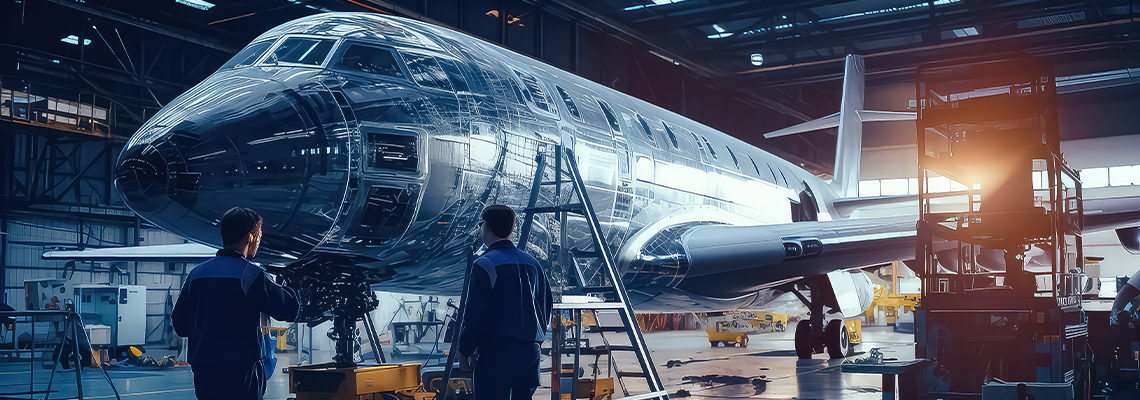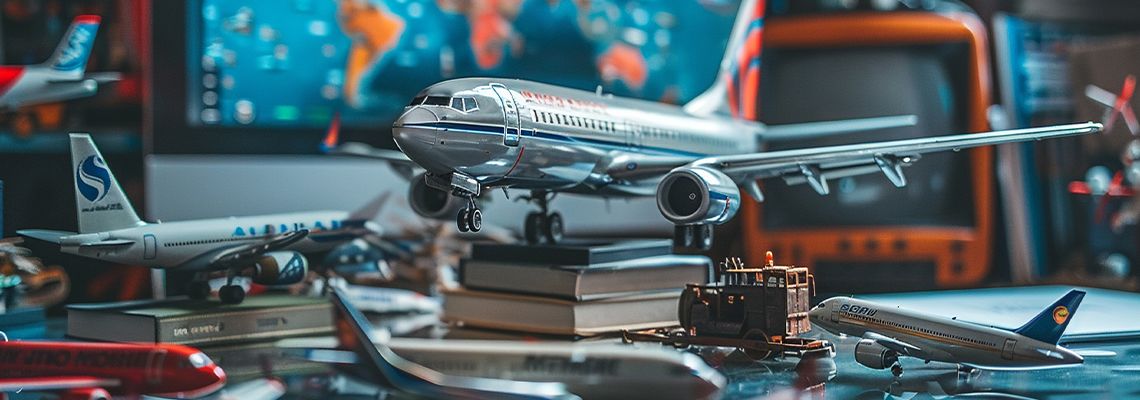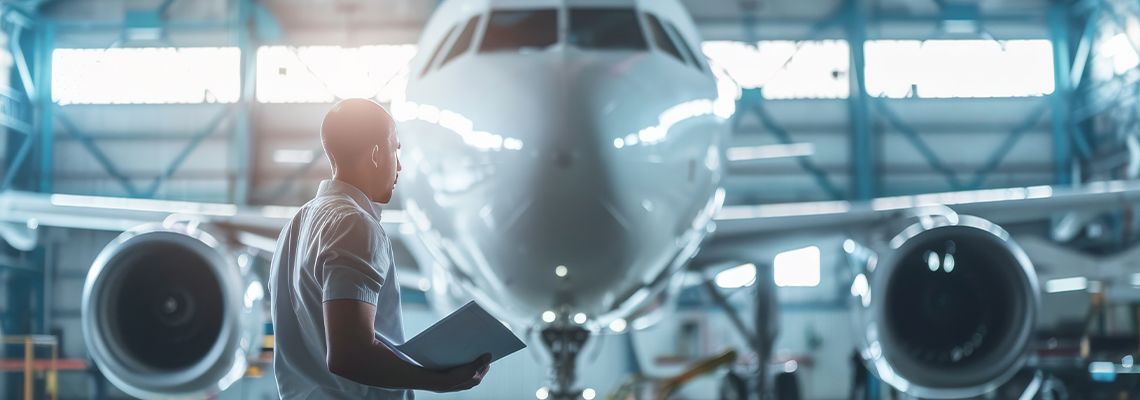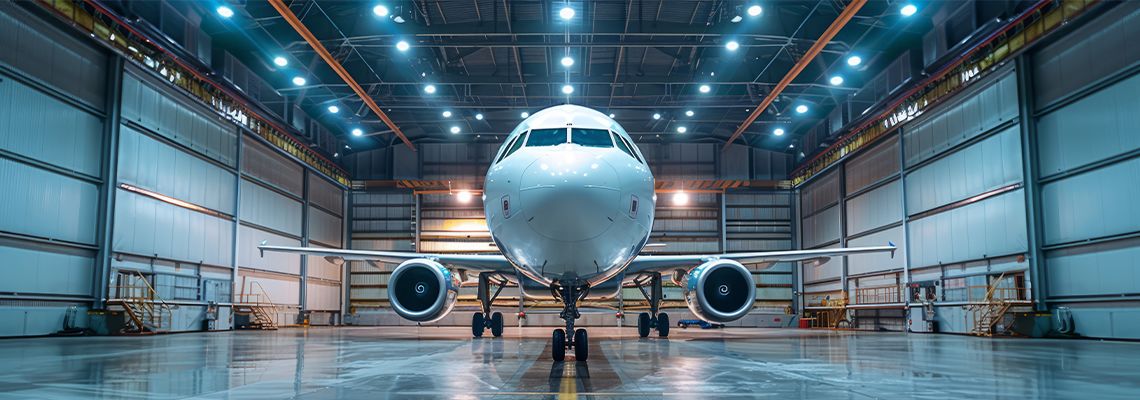Selling or buying an aircraft can be an exhilarating venture, filled with visions of soaring success and a taste of the high-flying lifestyle. However, it’s not all smooth sailing.

What Are the Rights of Aircraft Owners and Maintenance Shops in Aircraft Maintenance Disputes?
When it comes to aircraft ownership, maintenance is a critical part of ensuring safety and longevity. However, disputes can often arise between aircraft owners and maintenance shops over issues such as costs, quality of work, and timelines. If you're facing any of these types of issues, it is essential that you understand your rights. If you care about your investment or business, get the support of William G. Harger & Associates, PLLC to protect your rights and interests.
What Are the Rights of Owners and Shops?
In short, in aircraft maintenance disputes, the rights of aircraft owners and maintenance shops typically include:
The right of the aircraft owner to receive accurate cost estimates and timelines for maintenance work,
The right of the maintenance shop to receive fair compensation for parts and labor expended,
The right of both parties to contest perceived inaccuracies or unfair practices through regulatory or legal channels.
Understanding the rights of both parties in such scenarios is crucial to navigating these disputes effectively. Thus, a thorough comprehension of these rights aids in resolving disputes amicably, maintaining a healthy business relationship, and moving toward a seamless aircraft operation.
Aircraft Owners' Rights in Maintenance Disputes
Aircraft owners have several rights in maintenance disputes:
Get Proper Repairs. First and foremost, they have the right to demand proper repairs from the maintenance shop. The shop has a legal obligation to perform repairs in accordance with industry standards and regulations, which includes using qualified personnel, following approved procedures, and using approved parts and materials.
Inspect Their Aircraft During Maintenance. Aircraft owners also have the right to inspect their aircraft during maintenance. This allows them to be confident that the maintenance shop is adhering to the agreed-upon maintenance agreements and performing the required repairs. Such inspections can help to identify any potential issues or discrepancies early on, thereby preventing later, more costly disputes.
Receive Detailed Documentation. Moreover, aircraft owners have the right to receive detailed documentation of the maintenance performed on their aircraft. This includes maintenance records, invoices, and any other relevant documentation. These records act as evidence in case of disputes and can help establish the quality of maintenance performed.
Seek Compensation. In the event of substandard maintenance causing damages, aircraft owners have the right to seek compensation. They can pursue damages for losses incurred due to negligence, improper or inadequate repairs by the maintenance shop. If any dispute cannot be resolved, the owner's process of seeking compensation may ultimately involve filing a legal claim (lawsuit) and presenting evidence of the damages sustained.
As an aircraft owner, don’t forget: you have rights. These rights help guarantee proper maintenance practices, create transparency between parties, and give you options in case things go south.
Maintenance Shops' Rights in Maintenance Disputes
Maintenance shops, too, have rights when it comes to maintenance disputes.
Timely Payments. First, they have the right to timely and agreed-upon payment for the services rendered. They should receive the compensation they are owed for their work in the manner agreed upon before the work was done, or absent such an agreement, payment in full within a reasonable time frame, not to exceed 30 days.
Legal Remedies. In case of non-payment, they may have legal options available to pursue unpaid fees, such as filing a lawsuit or placing a lien on the aircraft with the FAA. In Texas, such liens can be filed for maintenance, storage or fuel sales, but they must be filed within 180 days of the completion of the services performed.
Exercise a Mechanic's Lien. Maintenance shops also have the right to exercise a mechanic's lien in certain situations. A mechanic's lien allows them to retain possession of the aircraft until the outstanding fees are paid. Further, under certain circumstances, the service provider can legally retake possession of an aircraft that has left the shop if a lien has been filed.
Limitation of Liability. Shops have the right to limitation of liability for certain repairs. This means that they may not be held fully responsible for damages or issues that arise after the completion of specific repairs, unless it can be established that they were responsible for the subsequent problem. The extent of this limitation of liability may vary depending on the circumstances and applicable laws.
It is important for maintenance shops to understand their rights and limitations in order to navigate maintenance disputes effectively.
Understanding Aircraft Maintenance Disputes
Disputes can arise due to many reasons. When they do, many individuals and companies wisely choose to seek for legal guidance. Some of these disputes include situations such as:
disagreements over the quality or timeliness of the maintenance performed;
conflicts regarding the cost and billing of maintenance services;
legal issues related to the violation of maintenance contracts;
contentions about the use of unauthorized or counterfeit parts;
disputes arising from damage to the aircraft during maintenance; and/or,
non-compliance with FAA regulations and standards.
Options like mediation can frequently offer peaceful resolutions. By finding a compromise that both parties can agree on, it's possible to sidestep the expenses associated with litigation. Additionally, settling disputes without litigation can help maintain safety and airworthiness. For example, if these disagreements aren't resolved informally, they could result in delays in getting other necessary maintenance.
The Role of an Aviation Attorney
Early consultation with an aviation legal professional is often recommended to prevent the escalation of disputes. By involving an attorney at an early stage, both aircraft owners and maintenance shops can benefit. Attorneys can help identify potential legal strategies, such as mediation and negotiation, to reach a resolution that satisfies both parties. An aviation law attorney can also guide clients through the litigation process, representing their interests in court and presenting a strong case. However, litigation should be approached only when other efforts fail.
Navigating Aircraft Maintenance Disputes Effectively
No matter your aviation dispute situation, you should understand your rights. An aviation attorney plays a critical role in the resolution of aircraft maintenance disputes.
William G. Harger & Associates, PLLC, provides valuable guidance and representation in negotiation, mediation, and, if necessary, litigation of aircraft maintenance disputes. Mr. Harger is a licensed and experience Airframe and Powerplant (A&P) mechanic, as well as aircraft owner and former profession jet captain. Attorney Harger handles a wide variety of services including dispute resolution, contract drafting and review, risk management, regulatory compliance, and aircraft transactions. Ultimately, you deserve the support of an attorney who will protect your rights and best interests.
From his office in Richmond (near Houston), Texas, Attorney Harger serves clients in Houston, Dallas, San Antonio, Austin, and anywhere throughout Texas and the United States. Reach out today to schedule a meeting.
RECENT POSTS
In aviation law, guaranteeing compliance with regulatory requirements is crucial for the operation of aircraft in Texas. One of the key frameworks for verifying this compliance is the A.R.R.O.W. documentation checklist.




